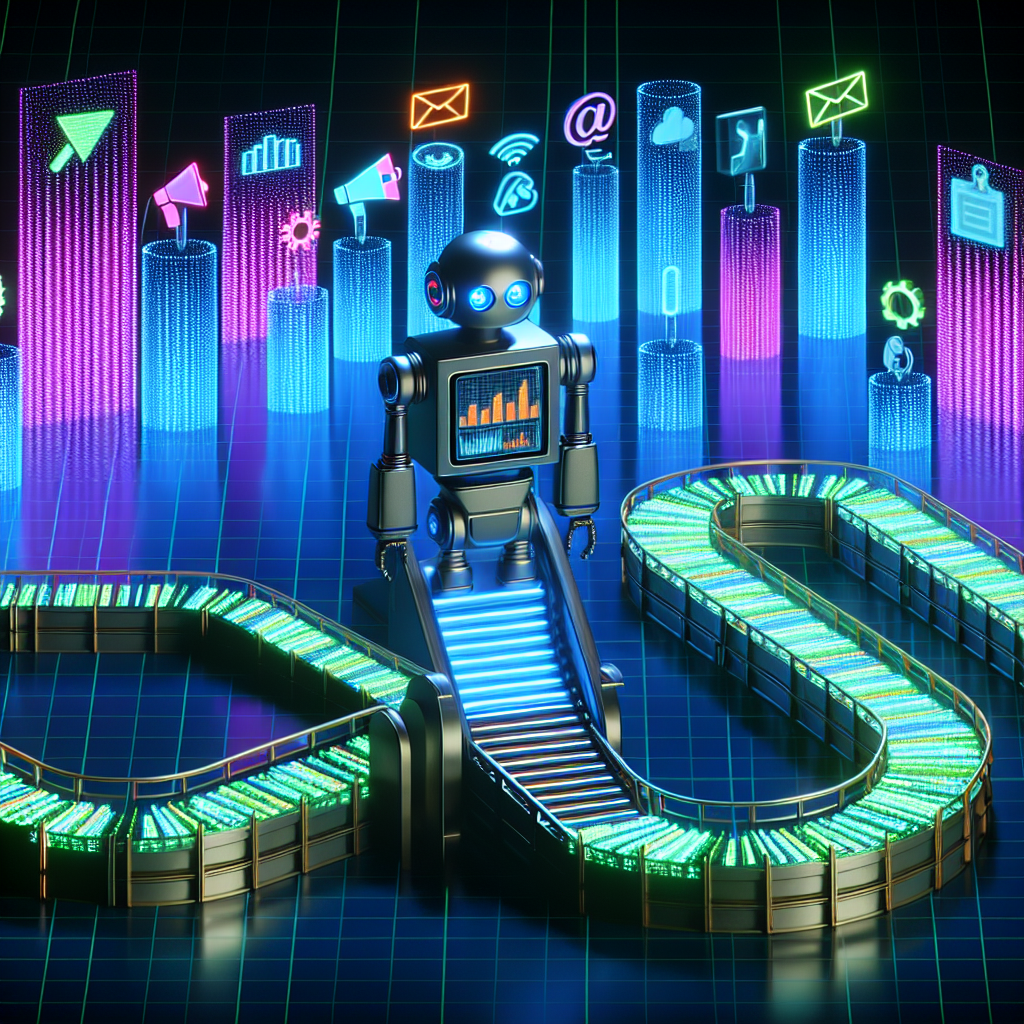Artificial Intelligence (AI) has become increasingly prevalent in marketing automation, revolutionizing the way businesses engage with their customers. By harnessing the power of AI, companies can streamline their marketing efforts, personalize customer interactions, and ultimately drive revenue growth. In this article, we will explore the benefits of implementing AI in marketing automation, as well as address some common questions and concerns.
Benefits of Implementing AI in Marketing Automation:
1. Personalization: One of the key benefits of using AI in marketing automation is the ability to personalize customer interactions. AI algorithms can analyze customer data in real-time, enabling businesses to deliver targeted messages and offers to individual customers based on their preferences and behavior. This level of personalization can significantly increase customer engagement and loyalty.
2. Predictive Analytics: AI-powered marketing automation tools can also leverage predictive analytics to forecast future customer behavior. By analyzing historical data and identifying patterns, AI algorithms can predict which customers are most likely to make a purchase, churn, or engage with a particular campaign. This allows businesses to proactively target high-value customers and optimize their marketing strategies.
3. Automation: AI can automate repetitive tasks such as email marketing, social media scheduling, and lead scoring, freeing up marketers to focus on more strategic activities. By automating these routine tasks, businesses can increase efficiency, reduce human error, and scale their marketing efforts more effectively.
4. Real-time Insights: AI-powered marketing automation platforms can provide real-time insights into customer behavior, enabling businesses to make data-driven decisions on the fly. By monitoring key metrics such as click-through rates, conversion rates, and customer engagement, businesses can quickly adjust their marketing strategies to optimize performance.
5. Customer Segmentation: AI algorithms can segment customers into distinct groups based on their preferences, demographics, and behavior. This allows businesses to tailor their marketing campaigns to specific segments, increasing relevance and driving higher conversion rates. By targeting the right audience with the right message at the right time, businesses can maximize the impact of their marketing efforts.
Common Questions and Concerns:
1. Is AI in marketing automation only for large enterprises?
No, AI-powered marketing automation tools are increasingly accessible to businesses of all sizes. Many marketing automation platforms offer AI capabilities that can be tailored to the specific needs and budget of small and medium-sized businesses. By leveraging AI, even small businesses can improve their marketing efficiency and drive better results.
2. Will AI replace human marketers?
While AI can automate many routine marketing tasks, it is unlikely to replace human marketers entirely. Human creativity, intuition, and strategic thinking are still essential for developing compelling marketing campaigns and building strong customer relationships. AI can complement human marketers by providing data-driven insights and automating repetitive tasks, allowing marketers to focus on higher-level strategic activities.
3. How can businesses ensure data privacy and security when using AI in marketing automation?
Data privacy and security are paramount concerns when implementing AI in marketing automation. Businesses should ensure that they comply with relevant data protection regulations, such as GDPR, and take steps to safeguard customer data. This includes using secure encryption protocols, implementing access controls, and regularly auditing and monitoring data usage. By prioritizing data privacy and security, businesses can build trust with their customers and protect sensitive information.
4. How can businesses measure the ROI of AI in marketing automation?
Measuring the ROI of AI in marketing automation can be challenging, as it involves tracking multiple metrics and KPIs across different channels. Businesses should use a combination of quantitative metrics, such as conversion rates, customer lifetime value, and revenue growth, along with qualitative metrics, such as customer satisfaction and brand perception. By analyzing the impact of AI on these key metrics, businesses can determine the overall ROI of their marketing automation efforts and make informed decisions on future investments.
In conclusion, implementing AI in marketing automation can offer a wide range of benefits, from personalized customer interactions to predictive analytics and automation. By leveraging the power of AI, businesses can improve their marketing efficiency, drive revenue growth, and gain a competitive edge in today’s digital landscape. While there are some common questions and concerns surrounding AI in marketing automation, businesses can address these by prioritizing data privacy and security, measuring ROI effectively, and leveraging AI to complement human marketers. Ultimately, AI in marketing automation has the potential to transform the way businesses engage with their customers and drive success in the digital age.

